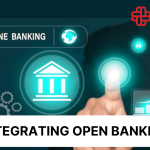Artificial Intelligence is transforming the financial services industry by enabling banks to make faster, smarter, and more data-driven decisions. From real-time fraud detection to personalized financial services, AI is at the forefront of innovation across all banking functions. This course offers a practical and strategic exploration of how AI can be applied to solve real-world challenges in banking while improving operational efficiency, regulatory compliance, and customer experience.
Participants will gain hands-on experience with tools such as Python and machine learning algorithms to analyze banking datasets, build predictive models, and apply natural language processing (NLP) for automated service. The course also covers the ethical and governance aspects of AI in finance and provides a future-looking perspective on the evolution of intelligent banking systems.
By the end of this course, participants will be able to:
- Identify key AI applications in banking operations including credit risk, fraud prevention, and customer relationship management.
- Analyze financial data using Python and conduct exploratory data analysis (EDA).
- Build and evaluate machine learning models for loan prediction, churn analysis, and fraud detection.
- Apply NLP techniques to automate customer communication and service workflows.
- Understand the ethical, regulatory, and security considerations of AI use in banking.
- Explore the latest trends in AI-powered financial technologies and innovations.
This course is designed for:
- Banking executives and department heads exploring digital transformation.
- Data analysts and data scientists working in the financial sector.
- Risk and compliance officers implementing AI in regulatory processes.
- Software and AI developers building banking solutions.
- Innovation leaders and fintech entrepreneurs.
- Financial service professionals seeking to apply AI in customer and credit analytics.
This training combines expert-led instruction with practical exercises using real-world banking data. Participants will complete guided Python labs, group projects, case study discussions, and strategy sessions. Emphasis is placed on applying AI concepts to banking challenges through active learning and peer exchange.
Day 5 of each course is reserved for a Q&A session, which may occur off-site. For 10-day courses, this also applies to day 10
Section 1: Foundations of AI in Banking
- The rise of AI in financial services: overview and global trends.
- Core use cases: credit scoring, fraud detection, KYC automation, and customer engagement.
- Overview of AI technologies in banking: ML, NLP, deep learning, and recommender systems.
- Benefits and challenges of implementing AI in a regulated environment.
- Banking case studies: successful AI adoption in global and regional banks.
Section 2: Data Exploration and Python for Banking Analytics
- Introduction to Python for financial data analysis.
- Common data types and formats in banking datasets.
- Conducting exploratory data analysis (EDA) to uncover patterns and outliers.
- Ensuring data privacy, accuracy, and security in banking environments.
- Lab: Hands-on EDA using pandas, NumPy, and visualization libraries on real-world banking data.
Section 3: Machine Learning for Predictive Banking
- Building supervised learning models: logistic regression, decision trees, random forests.
- Predicting loan default, creditworthiness, and customer churn.
- Real-time fraud detection using classification algorithms.
- Model validation and compliance considerations (accuracy, fairness, auditability).
- Workshop: Creating and deploying a customer retention model.
Section 4: Advanced AI and Natural Language Processing
- Applying NLP to banking: chatbots, sentiment analysis, and document parsing.
- Automating customer support and feedback handling with language models.
- Introduction to deep learning in finance: RNNs for time series and CNNs for image-based analysis.
- Project: Building a simple AI assistant for common customer queries.
- Discussion: AI in transaction monitoring, compliance reporting, and credit documentation.
Section 5: Deployment, Ethics, and Future Outlook
- Best practices for deploying AI solutions in financial institutions
- Integrating AI with legacy systems and banking platforms.
- Addressing bias, fairness, and explainability in AI models.
- Regulatory frameworks governing AI in banking (e.g., GDPR, Basel III, AI Act).
- Future trends: generative AI in advisory services, AI in decentralized finance (DeFi), autonomous financial agents.
- Final group presentations: Showcasing predictive models and AI solution concepts.
Upon successful completion of this training course, delegates will be awarded a Holistique Training Certificate of Completion. For those who attend and complete the online training course, a Holistique Training e-Certificate will be provided.
Holistique Training Certificates are accredited by the British Accreditation Council (BAC) and The CPD Certification Service (CPD), and are certified under ISO 9001, ISO 21001, and ISO 29993 standards.
CPD credits for this course are granted by our Certificates and will be reflected on the Holistique Training Certificate of Completion. In accordance with the standards of The CPD Certification Service, one CPD credit is awarded per hour of course attendance. A maximum of 50 CPD credits can be claimed for any single course we currently offer.
- Course Code PI2 - 121
- Course Format Classroom, Online,
- Duration 5 days









